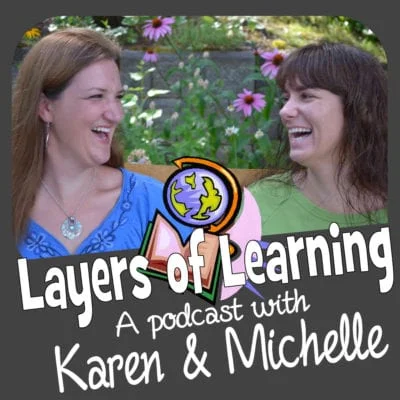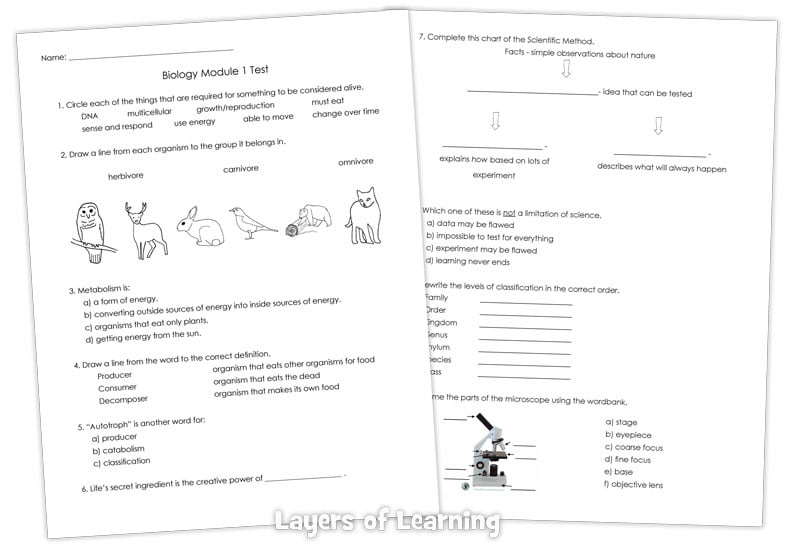
The Layers of Learning Podcast with Karen and Michelle is here to help you get your whole family learning together in your homeschool. We are the sisters behind Layers of Learning. We love getting together to chat about homeschooling and this podcast is just a series of our chats. We’re inviting you to listen in on our conversations.
We both have big families, but we teach almost all of our school subjects to everyone at once. We want to help you find the joy in that too, so we talk a lot about family homeschooling. To see all of our episodes, visit our Layers of Learning Podcast Page. Join us as we explore how to have a happy, hands-on, family-style homeschool.
Tests in Homeschool

Tests are a hallmark of school for public schooled kids, but tests in homeschool are a little less valuable. There is little to no value in young kids being tested, but as your kids grow older, they will benefit from learning to take tests. Test-taking skills need to be developed. There are some really simple ways you can help them learn these skills while evaluating what they know. In this podcast, Karen and Michelle chat frankly about some ways they test their kids, how to write effective tests, and how to know what things you should test on. You’ll also hear lots of tips and tricks for teaching your kids test-taking skills and how to successfully use tests in homeschool in moderation.
Here Are A Few Topics You’ll Hear About in this Podcast:
Testing is more valuable in a classroom than in a homeschool, because it is a quick way to evaluate what a whole classroom of kids knows efficiently.
A written test is not the only way to evaluate what your kids know. Challenges, writing assignments, and quiz games are all valuable culmination activities. Tests in homeschool have their place, but should not be the focus of your learning time.
Testing is a skill, so kids need to learn to take them so they can develop test-taking skills.
Tests generally involve: the vocabulary, the important people, and key events. These can be asked in a variety of formats – matching, multiple choice, true/false, and fill-in-the-blank. The last section is usually a short answer portion that asks kids to explain the more significant concepts or events.
You can use printables you completed together during a unit a second time to quiz your kids on information you learned during a unit. There are a variety of ways to check understanding besides just giving written tests in homeschool.
How to decide what you should include on tests for your kids.
Tips for teaching test-taking skills.
Why the Layers of Learning curriculum doesn’t include tests and how to have your kids show what they know from a unit, with or without a formal, written test.
Our goal as a homeschool parent is to have kids that are educated, not just kids that have good grades. If tests can be used to evaluate your progress as a homeschool family, they are worthwhile.
How to use the same basic test for all of your kids, no matter their ages, when you do choose to write a test.
Click the Play button to hear the podcast, then subscribe below!
Podcast: Play in new window | Download
Subscribe: Apple Podcasts | Spotify | Podcast Index | Email | Deezer | RSS | More
Get a Free Unit
Choose between the first unit in each Layers of Learning subject to try for free when you sign up for the newsletter.
We never spam and you can cancel your subscription at any time.

